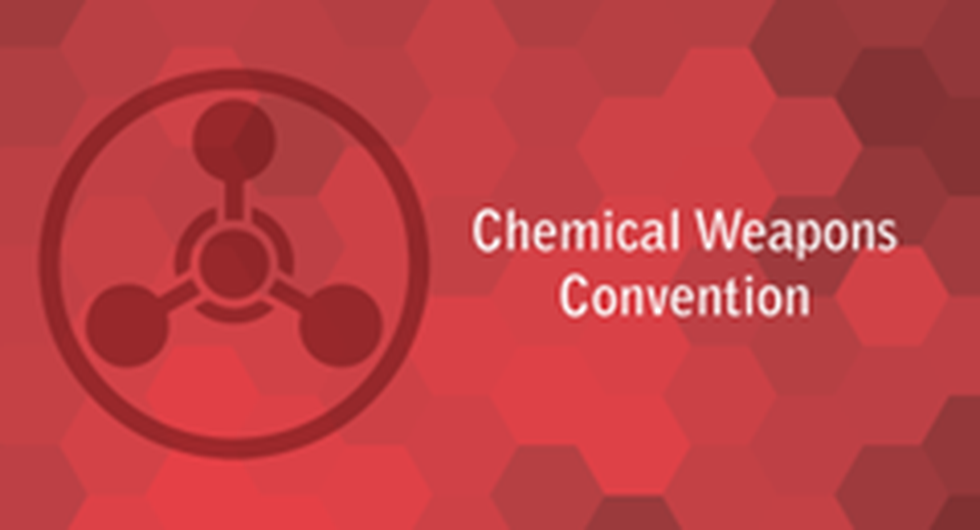Why in news?
- The U.S. faced a September 30 deadline to eliminate its remaining chemical weapons under the international Chemical Weapons Convention.
Key facts about Chemical Weapons Convention
- It is a multilateral treaty that bans chemical weapons and requires their destruction within a specified period of time.
- It entered into force on April 29, 1997.
- It requires states-parties to declare in writing to the OPCW their chemical weapons stockpiles, chemical weapons production facilities (CWPFs), relevant chemical industry facilities, and other weapons-related information.
- The CWC is open to all nations and currently has 193 states-parties.
- India is a signatory and party to the Chemical Weapons Convention.
- It has signed the treaty at Paris on 14th day of January 1993.
- It is pursuant to provisions of the Convention enacted the Chemical Weapons Convention Act, 2000.
What is Organisation for the Prohibition of Chemical Weapons (OPCW)?
- It is the implementing body of the Chemical Weapons Convention (CWC).
- Mission: To implement the provisions of the Chemical Weapons Convention (CWC) in order to achieve the OPCW’s vision of a world that is free of chemical weapons and of the threat of their use, and in which cooperation in chemistry for peaceful purposes for all is fostered.
- Headquarters: Hague, Netherlands.
- It receives states-parties’ declarations detailing chemical weapons-related activities or materials and relevant industrial activities.
- It is authorized to perform inspections to verify that signatory states are complying with the convention.
- It also performs testing of sites and victims of suspected chemical weapons attacks.
